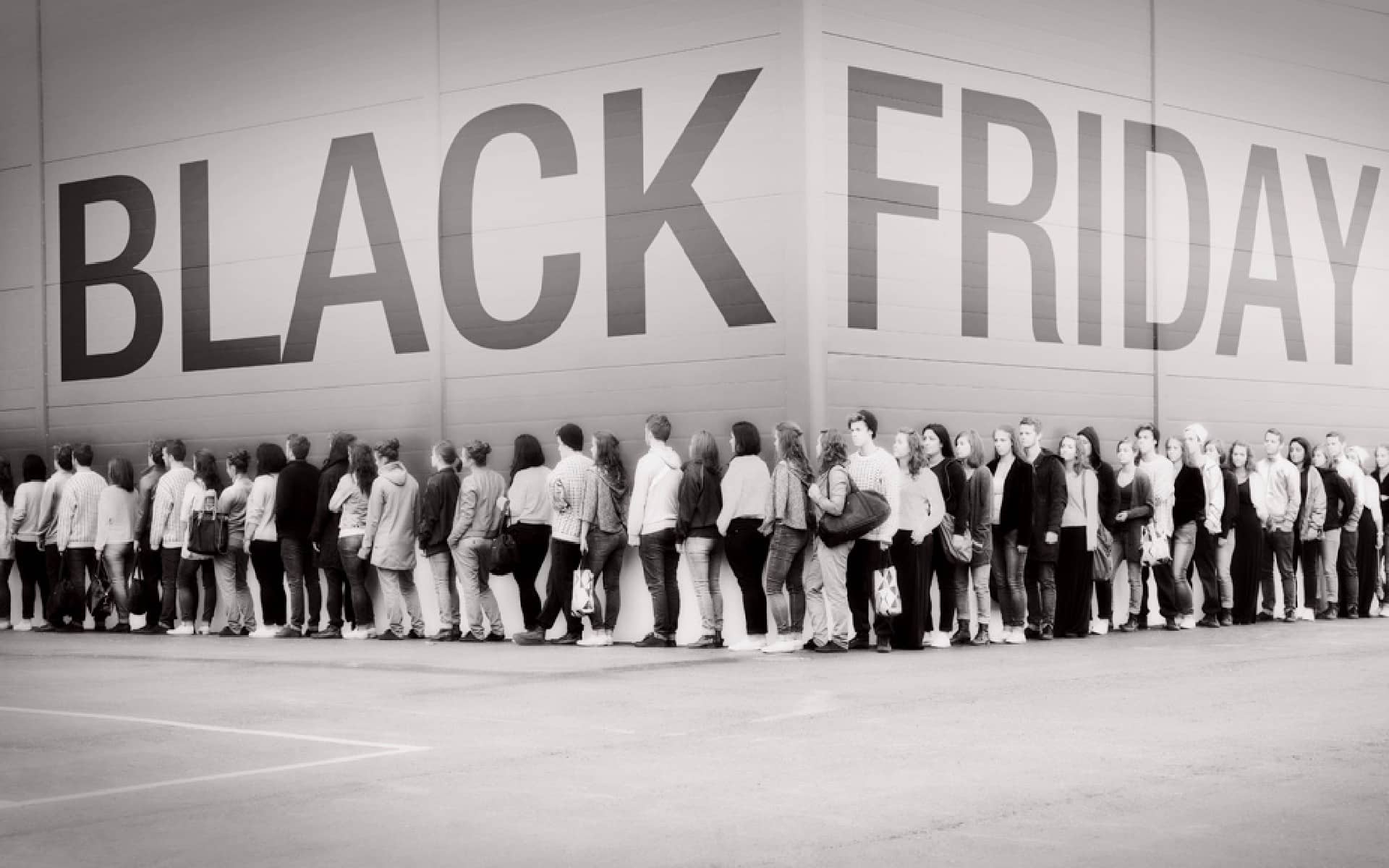Shining a Light on Black Friday
November 2018

November 2018

It may be argued that Black Friday is unlike any other date in the calendar such as Valentine’s Day or Halloween. These are occasions that have become adopted and increasingly commercialised, sometimes crudely, by brands and retailers over recent years around the world. Black Friday, as many will be aware, is all about retail and to most people was only ever about retail. Historically the term was first used in 1869 to describe a financial crisis in America. There are urban myths concerning the slave trade and corporate financial performance, both of which are widely acknowledged as being incorrect. On September 24, 1869, a Friday, James Fish and Jay Gould tried to take over the gold market in the New York Gold Exchange[1]. The financiers worked together to buy up as much as they could of the nation’s gold, hoping to drive the price sky-high and sell it for astonishing profits. On that day in September, the conspiracy finally unravelled, sending the stock market into free-fall and bankrupting everyone from Wall Street barons to farmers. The name has since meandered through various connotations until the early 1960’s when police in the city of Philadelphia used it to describe the chaos (shopping traffic) the day after Thanksgiving. In 1975 the name appeared in the New York Times and it entered the American vernacular spreading to other markets around the world and spawning other ‘sub-brands’ including ‘Small Business Saturday’ and more latterly ‘Cyber Monday’.
The figures over recent years are mind-blowing as brands ready themselves for the biggest shopping weekend of the year. In the USA the expected spend next week will be a staggering $90.14 billion which is an increase of over $30billion from the same period last year[2]. In the UK last year nearly £1.4billion was spent on online sales alone and retail analysts are confidently expecting this to increase by as much as 25% or more. Whilst there have been ugly scenes in the not too distant past with consumers fighting in the aisles to take advantage of deals, this side of Black Friday thankfully seems to have abated and increasingly brands are factoring Black Friday (weekend) into their marketing strategy (alongside their sales planning).
Experiential marketing has a huge part to play in engaging consumers with brands and driving sales over this period. Driving return on investment over this weekend leading into the Christmas period is a key commercial objective for a huge number of brands. With Purity offices in the UK and USA, we explore ways in which brands could leverage their exposure using brand experience over Black Friday;
Clicks v Bricks
The world of online and offline retailers and even app providers has the potential to become blurred over the Black Friday weekend. Traditional online retailers see the opportunity to bring their brands to life through experiential marketing in high footfall locations. These brands will be aware that consumers will later go online to purchase their products, but by creating pop-up or stunt-based experiences in locations attracting a high flow of target consumers, they create the opportunity for interaction, brand recall and purchase consideration. This time last year Purity created an experiential campaign for Zipcar at Westfield Stratford over Black Friday weekend with fantastic results given the higher than usual footfall at this location over the weekend.
Holidays are Coming – start of the Xmas shopping season
Whilst in the USA Black Friday falls after Thanksgiving, in the UK it is perhaps now seen as the unofficial start of the Christmas shopping season. Black Friday weekend therefore presents a chance for brands to drive trial or hands-on experience with consumers as their minds turn to Christmas shopping for friends and family. Experiential solutions, when executed with the right strategic and creative application, disrupt, generate dwell time, allow deep, rich consumer interaction and ultimately can influence consumer purchase behaviour. At a time of year when consumers are bombarded with messages, a strong experiential activation can elevate a brand and create word of mouth leading to advocacy.
Immerse, innovate & engage – have fun
Experiential marketing often is about facilitating escapism and fun. Whilst Black Friday weekend has an underlying commercial realism to it, brands should recognise that to create stand out on a busy weekend for retailers and consumers alike then creating immersive, innovating and fun brand experience activations should be a key driver. Our philosophy at Purity is about capturing consumer attention then converting this to create brand devotion. Experiential marketing is a tremendous vehicle to achieve this. Integrating brand experience campaigns through other marketing channels, particularly digital is vital. This amplification will give brands not only greater returns, but greater opportunities to maintain the interaction and dialogue with consumers.
Start your project
To understand how Purity can shape the experiential marketing strategy for your brand, please contact our team today.